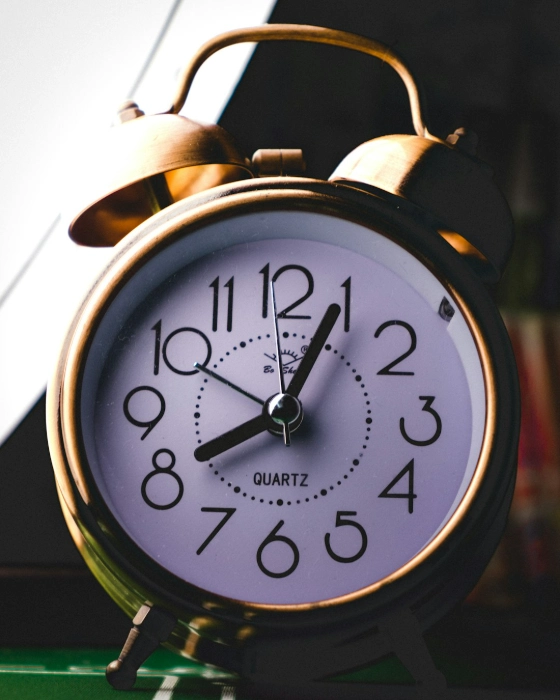A Day in the Life of a Menopausal Intermittent Faster

When it comes to intermittent fasting, the most frequent questions I get are:
When do you eat?
What do you eat?
How do you survive for 20 hours without eating?!?!?!
WHY would you do this crazy thing?
Everyone's day looks different, but here's mine:
4:00 AM: Wake up, drink water with trace minerals, take supplements, workout, 1-2 cups of black coffee, get ready for work.
6:30 AM to 3:30 PM: Work, drink water with trace minerals. (I fill an 84 oz jug to drink at work each day.)
4:00 PM: Snack time! I usually eat a bowl of plain yogurt with blueberries and honey. If I have time, I might cook 2-3 eggs. I love eggs, and they are a perfect source of protein. I also take the rest of my supplements. I noticed that after 20 hours, that first bite of food tastes unbelievable. It’s almost like a reset button for your tastebuds.
6:30 PM: Dinner! My typical dinner might be grass fed beef or organic chicken with veggies on the side. Sometimes I'll add a piece of sourdough bread with grass fed butter. I usually drink Topo Chico or tea in the evening. My goal is to finish eating before 8:00 PM, since that's the end of my four hour eating window.
8:00 PM: Drink magnesium supplement. No more eating for 20 hours.
9:30 PM: Bedtime
That's the when and the what, but most people marvel at how I go so long with no morning breakfast, lunch, or snacks. In reality, 20 hours is not that long to go without food— we've just been conditioned to eat three meals a day with snacks in between. Growing up, I always heard, “Breakfast is the most important meal of the day!” or “To lose weight, eat six small meals throughout the day.” BTW, this isn’t true for everyone, and there is plenty of research to back it up (Check out the work of Dr. Jason Fung). After a few days, I stopped feeling hungry during the day, and I only feel like eating as the 4PM snack time approaches. According to the research, fasting can condition the body to prepare for food (feeling hungry, stomach growling, etc) only at the times you regularly feed it. For me, that’s 4PM on most days. I’m not superhuman… my body is simply accustomed to my new eating schedule.
The first few days of intermittent fasting might feel like an eternity, but your body will get used to it by day four period.It helps me to drink water first thing in the morning. Then I drink a cup or two of plain, black coffee (no creamer, sugar, sweetener of any kind, MCT oil, etc.). The water fills my belly and hydrates while the coffee is a little eye opener for the morning.
As the day progresses, I continue drinking water with trace minerals. This helps me feel full. I used to work through lunch, but I missed the valuable connection with my colleagues, so I fill a large cup with water and sip away for 30 minutes while enjoying lovely conversation with interesting people. This also helps the day pass quickly. At first, it was hard to sit and watch others eat, but I quickly got over that.
What I eat varies and I don't have a strict diet aside from the intermittent fasting schedule. When I started IF, I ate whatever I wanted or foods that were quick and easy to grab. I simply focused on the IF schedule. After a few months, I began cleaning up my diet to eliminate heavily processed foods; if it comes in a package with more than a few listed ingredients, I don't eat it. I try to avoid seed oils whenever possible. No more fast food or purchase snacks or packaged snacks like potato chips. I very rarely eat at restaurants now.
But there are some days that I choose to eat potato chips, or go out to eat with a friend, or even have a glass of wine. These are occasional events for me, not everyday life choices. My favorite way to break a fast is a bowl of whole fat yogurt with fresh organic blueberries and a drizzle of honey. My dinner is usually a protein: chicken, steak, grass fed hamburger, or roast beef with a side of rice, veggies, or sourdough bread. Some nights, I’ll have eggs for dinner: it's a quick and easy source of protein.
But those are MY choices. You must find a way that works for you. I'm still learning what my body loves and doesn't in order to perform at my best. It’s a process.
That brings us to the WHY. Most people think it’s crazy to go without food for 20 hours. I have to admit, IF is not what Big Food and Big Pharma has conditioned us to accept as healthy; HOWEVER, IF has completely turned my life and health around. I was a fat, sick, suffering, menopausal woman. After trying IF for only a few weeks, I saw dramatic improvements in my weight, mood, joints, sleep, focus, hot flashes, etc. That’s the BIG WHY. I took control of my health. My health is MY responsibility, not doctors, hospitals, pharmaceutical companies, or diet food companies. It’s MINE. When I accepted it was up to ME to fix my issues, my health improved dramatically. I no longer felt like a victim, but a victor.
Dear Reader, if you are curious (or desperate) to make changes, I encourage you to think outside the box and take control of your health. What’s one thing you can start today? It might be IF. I encourage you to keep reading, researching, asking questions, and trying new things. I can’t wait to hear what works for YOU!
With gratitude,
Jennifer Kaye
